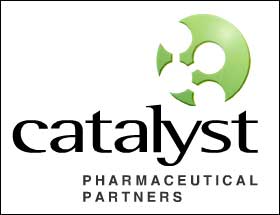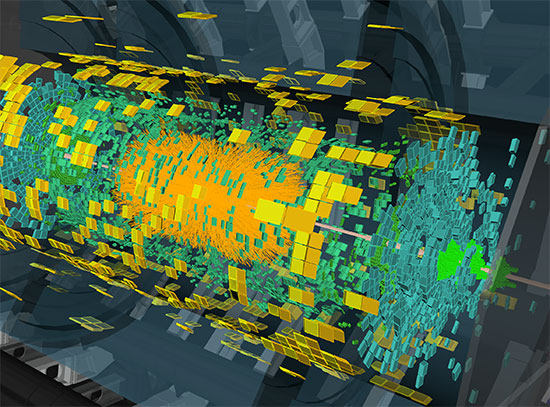Catalyst Pharmaceutical Partners, Inc. Initiates U.S. Phase II Clinical Trial of CPP-109 in Patients With Cocaine Dependence
July 10, 2007
The following news release on the start of a Phase II U.S. clinical trial to evaluate the safety and efficacy of CPP-109 - a pharmaceutical product containing the epilepsy drug vigabatrin, or GVG - as a treatment for cocaine addiction was issued today by Catalyst Pharmaceutical Partners (CPP). A large body of preclinical research conducted by Stephen Dewey, of the U.S. Department of Energy's Brookhaven National Laboratory, and Jonathan Brodie, a psychiatrist at the New York University School of Medicine, shows that vigabatrin/GVG holds promise as a treatment for addiction to a variety of abused drugs, including cocaine (see: http://www.bnl.gov/CTN/GVG/). CPP has licensed from Brookhaven National Laboratory the right to use vigabatrin to treat a wide variety of substance addictions.
For more information on Brookhaven National Laboratory's vigabatrin research, contact Peter Genzer, (631) 344-3174, genzer@bnl.gov, or Karen McNulty Walsh, (631) 344-8350, kmcnulty@bnl.gov.
New York University School of Medicine contact: Pamela McDonnell, (212) 404-3595, Pamela.McDonnell@nyumc.org.
CPP Contact: Patrick J. McEnany, Chief Executive Officer, Catalyst Pharmaceutical Partners, 305-529-2522, pmcenany@catalystpharma.com.

CORAL GABLES, Fla., July 10, 2007 /PRNewswire-FirstCall via COMTEX News Network/ — Catalyst Pharmaceutical Partners, Inc. (Nasdaq: CPRX) a specialty pharmaceutical company that acquires or in-licenses, develops and commercializes prescription drugs for the treatment of drug addiction, today announced that it has initiated its randomized, double-blind, placebo-controlled U.S. Phase II clinical trial of CPP-109 in patients with cocaine dependence. CPP-109, an orally administered, small molecule drug which inhibits psychostimulant-induced dopamine release, is Catalyst's lead compound, vigabatrin.
On June 28th and 29th Catalyst held a kick-off training meeting with the clinical investigators and study coordinators for the Phase II trial, in Asheville, North Carolina. More than 30 attendees, including clinicians and staff representing 10 clinical trial sites, attended the meeting.
Patrick J. McEnany, Chief Executive Officer of Catalyst commented, "We are excited about the initiation of this first, large-scale U.S. Phase II study of CPP-109 as a potential treatment for cocaine addiction. We believe that CPP- 109 offers the potential to provide patients suffering from cocaine addiction, as well as the physicians and clinicians that treat them, with a safe and effective treatment option."
The Phase II trial is designed as a randomized, double-blind, placebo-controlled, intent-to-treat, multicenter study to evaluate the safety and efficacy of CPP-109 as a treatment for cocaine addiction. The Phase II clinical trial is expected to enroll 180 cocaine dependent patients at 10 leading addiction treatment clinical centers in the United States. Patients will be treated for a period of 12 weeks, with an additional 12 weeks of follow-up. The primary endpoint of the study is to demonstrate that a larger proportion of CPP-109-treated subjects than placebo-treated subjects will be cocaine-free during their last two weeks of treatment (Weeks 11 and 12). Additionally, Catalyst will be measuring several secondary endpoints based on reductions of cocaine use.
"Vigabatrin has previously shown the potential to be a non-addictive drug treatment for cocaine and methamphetamine addiction in two pilot studies conducted in Mexico. We are excited to now be able to seek to determine the therapeutic benefit of our product in cocaine-addicted patients enrolled in a larger well-designed, placebo-controlled trial conducted under our sponsorship," said Douglas Winship, Vice President of Regulatory Operations for Catalyst. "There are currently no adjunctive drug products approved for the treatment of this population. As a result, drug therapies are desperately needed which can improve abstinence achievement rates of behavioral therapy administered by addiction treatment specialists, and reduce recidivism."
Catalyst expects to begin enrolling patients in its Phase II clinical trial as soon as it receives Institutional Review Board (IRB) approvals from the institutions where the trial will be conducted, which it expects will occur in the near future. Catalyst expects initial top-line results of the Phase II clinical trial to be available during the summer of 2008.
About CPP-109
CPP-109 works by inhibiting an enzyme that normally breaks down gamma amino butyric acid (GABA), a dopamine-modulating neurotransmitter. The resulting excess GABA suppresses the increase in dopamine release caused by cocaine. All addictive drugs elevate dopamine levels in the parts of the brain associated with reward and reinforcement. It is thought that this reinforcing effect is the primary biochemical explanation for addiction. CPP-109 indirectly keeps dopamine levels in the normal range without impairing normal dopamine-based mechanisms. It is also thought that this effect may reduce craving, an effect in addicts which makes it very difficult for them to stop their drug habit.
Catalyst's interest in CPP-109 is based on the results of two open-label studies conducted in Mexico using vigabatrin and a large body of preclinical research supporting use of the drug as a potential treatment for addiction conducted by Dr. Jonathan Brodie, a psychiatrist at the New York University School of Medicine, and Dr. Stephen Dewey of Brookhaven National Laboratory. Results from these trials show that CPP-109 is safe and holds promise as a treatment for addiction to a variety of abused drugs, including cocaine.
About Cocaine Addiction
Cocaine is a powerfully addictive drug of abuse which acts as a strong central nervous system stimulant that significantly increases the levels of brain dopamine, a chemical messenger associated with pleasure and movement. The build-up of dopamine causes continuous stimulation of receiving neurons, which is associated with the euphoria and energetic boost experienced by cocaine abusers.
Drug abuse and addiction, including cocaine and methamphetamine abuse, comprise a worldwide health problem that affects millions of people and has wide-ranging negative social consequences. According to the Office of National Drug Control Policy, the costs of drug abuse to society were an estimated $180 billion in 2002 in the United States. According to the United Nations Office on Drugs and Crime, in 2004 there were approximately 3.5 million users of cocaine and 2.7 million users of amphetamine-type stimulants across Europe.
In 2005, an estimated 19.7 million people in the United States suffered from dependence on illicit drugs, according to the National Survey on Drug Use and Health, published by the Substance Abuse and Mental Health Services Administration, or SAMHSA. According to the same source, 33.7 million Americans aged 12 and over reported using cocaine at some time in their life, and 7.9 million reported using crack cocaine at some time in their life. An estimated 2.4 million Americans reported current use of cocaine — 682,000 of whom reported using crack. There were 1.5 million persons who were classified with dependence on or abuse of cocaine. In addition, there were an estimated 900,000 new users of cocaine in 2004. Approximately 797,000 patients sought treatment for cocaine abuse in 2005.
Also according to the SAMHSA survey, approximately 512,000 people used methamphetamine in the month preceding the survey, approximately 192,000 were new users in 2004, and approximately 351,000 patients sought treatment for methamphetamine and other stimulant abuse in 2005.
About Catalyst Pharmaceutical Partners
Catalyst Pharmaceutical Partners, Inc. is a specialty pharmaceutical company focused on the development and commercialization of prescription drugs for the treatment of addiction. The Company has obtained from Brookhaven National Laboratory an exclusive worldwide license for nine patents and four patents pending in the United States relating to the right to use vigabatrin to treat a wide variety of substance addictions and obsessive compulsive disorders. Catalyst has also been granted rights to Brookhaven's vigabatrin- related foreign patents or patents pending in more than 30 countries. The Company's initial product candidate based on vigabatrin is CPP-109. CPP-109 has been granted "Fast Track" status by the U.S. Food & Drug Administration (FDA) for the treatment of cocaine addiction. This indicates that the FDA has recognized that CPP-109 is intended for the treatment of a serious or life- threatening condition for which there is no effective treatment and which demonstrates the potential to address unmet medical needs. In May 2007, the Company announced completion of a bioequivalence study demonstrating that CPP- 109 is bioavailable and bioequivalent to Sabril(R) Tablets, the version of vigabatrin marketed in Europe by Sanofi Aventis, potentially providing a basis for linking CPP-109 to the extensive body of published pre-clinical and clinical literature on Sabril(R). The Company also intends in the third quarter of 2007 to initiate a Phase II trial of similar size and design to the cocaine trial to test the safety and efficacy of CPP-109 in treating patients with methamphetamine dependence.
For more information about Catalyst, please contact Patrick J. McEnany, President and CEO, at (305) 529-2522 or visit the Company's web site at www.catalystpharma.com.
This press release contains forward-looking statements. Forward-looking statements involve known and unknown risks and uncertainties which may cause the Company's actual results in future periods to differ materially from forecasted results. A number of factors, including the timing of receipt of necessary approvals by the IRB's that operate the clinical trial sites where the study will be held, whether the results from the clinical trial conducted by the Company will be positive and those other factors described in the Company's Annual Report on Form 10-K for 2006 and the Company's Quarterly Report on Form 10-Q for the quarter ended March 31, 2007 that the Company has filed with the U.S. Securities and Exchange Commission ("SEC") and whether the results of clinical trials such as the trial referred to above will warrant further clinical trials or warrant submission of an application for regulatory approval of CPP-109, could adversely affect the Company. Copies of the Company's filings with the SEC are available from the SEC or may be obtained upon request from the Company. The Company does not undertake any obligation to update the information contained herein, which speaks only as of this date.
SOURCE Catalyst Pharmaceutical Partners, Inc.
2007-10663 | INT/EXT | Newsroom











